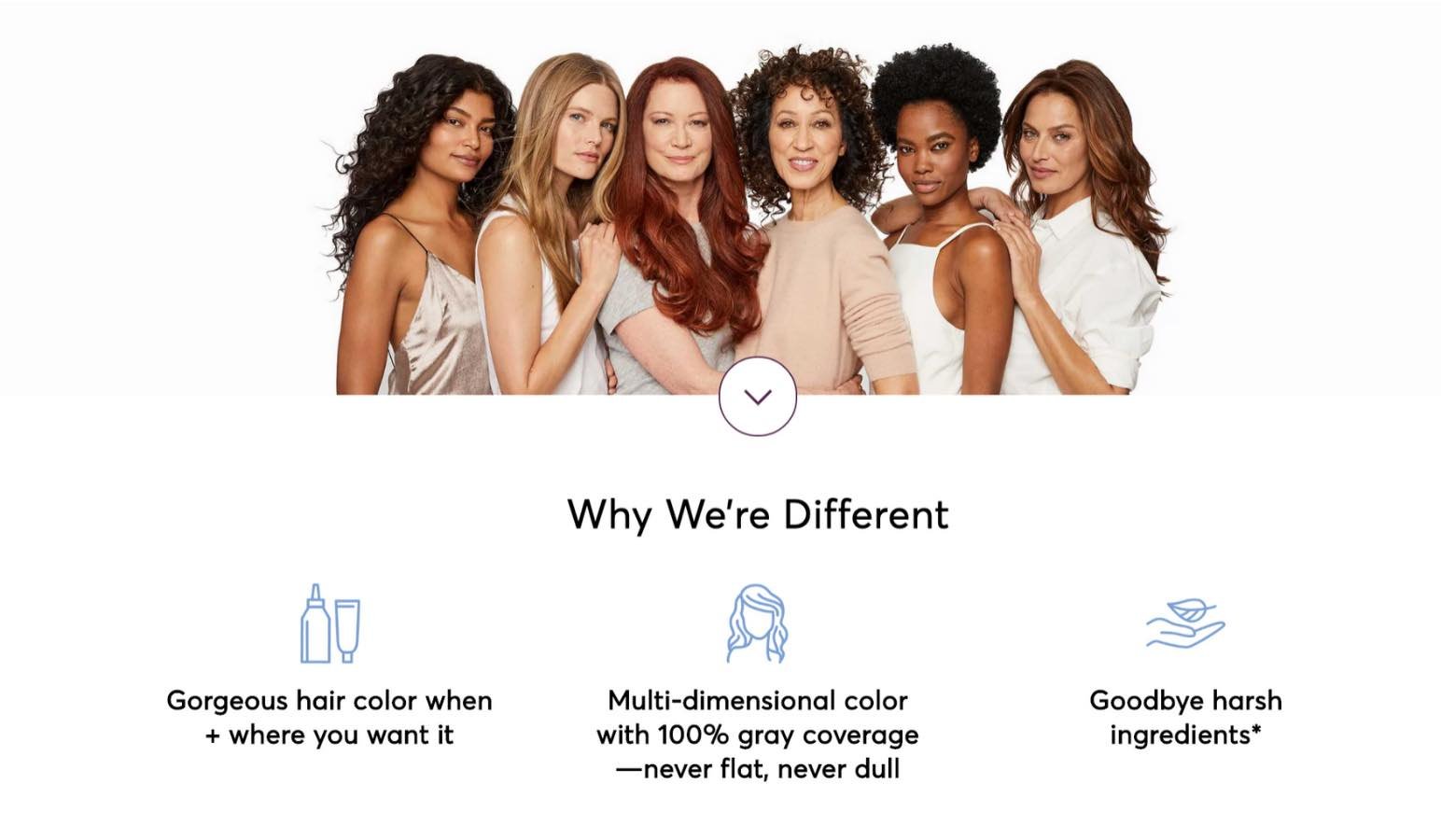What Are Some Problems Facing The Makeup World

Table of Contents Few could have predicted that if the entire population had to remain locked down at home for several months, personal dazzler would continue to be a priority. Nevertheless this want to wait good is not as superficial every bit one might think—the maintenance of need for corrective and personal care products during the COVID-xix crisis has a lot to exercise with the physical and psychological well-beingness of a society in quarantine. Even while manner has taken a back seat, consumers are nevertheless conscientiously keeping up with their body and facial care practices. Maintaining a cocky-care routine is not only beneficial for health, but also allows people to hold on to a sense of normalcy in their lives during these uncertain times. Skin, hair, and oral care products forth with accessories such as makeup and perfumes have maintained a good level of sales since the beginning of the coronavirus crisis. While the cosmetics industry is not expected to grow as much equally forecasts from early on 2020 indicated, dazzler companies will still retain more momentum compared to other sectors and are in a position to boost their expansion in digital channels. Before the pandemic, the cosmetics market saw continuous growth thanks to consumer interest in leading healthier lifestyles too as approaching self-care as a right and not and so much a question of vanity. Cosmetics manufacturers also embraced digital acceleration, giving them an advantage over other industries that were less prepared for the shift to a primarily e-based consumption landscape. Advertisements for corrective products on digital channels and social media are a common characteristic of well-nigh people's daily online experience. Brands accept been able to considerably increase their sales by developing a presence on Instagram (the quintessential dazzler care platform) and YouTube, in addition to collaborating strategically with influencers. In times of quarantine, consumers are looking for self-maintenance products and back up materials that are easy to utilize then they tin continue caring for themselves at abode fifty-fifty when hairdresser shops and beauty salons remain airtight. Videos on YouTube and Instagram offering tutorials and tips take become more than a marketing resources: going digital is vital to retaining the attending of a target audience. At the time same, information technology is clear that the consumption of beauty products has gone downwards and volition go along to refuse in comparison to spending on other essential products (such every bit nutrient and medicines). Moreover, the most sought-after product categories for buyers are also changing. For example, wearing a mask for a long time irritates the skin and this has led to more demand for facial care products. On the other manus, with everyone covering their oral cavity, it does non make much sense for consumers to rush to buy lipstick. → Related: Changes in the need of cleaning and disinfection products It would seem that the cosmetic and dazzler intendance products with the highest demand in the coronavirus landscape can be divided into either practical or luxury item categories: Some manufacturers have had to rebrand themselves by prioritizing the auction of products in their catalog that meet the current needs of customers while giving less preference to one time "star" products that are no longer top sellers. Nonetheless, these new demands are temporary and will shift very quickly, and then manufacturers must pay close attention to how consumption patterns and wellness and rubber measures evolve in different countries. For example, at that place appears to be a consumer trend in favor of applying lighter makeup when working from habitation and wearing a mask outdoors, though this could modify one time public spaces are reopened and social distancing regulations are relaxed. Every bit is the case in the chemic industry, cosmetics manufacturers may see medium-term problems in the supply of components for their products. Many tiptop brands have factories in Asian countries where they could face up difficulties both in keeping up with production and exporting goods. This scenario is giving cosmetic manufacturers cause to analyze the future of their current supply chain and consider perhaps investing in a more local distribution model. Some other related trouble is that many large retail chains such as Walmart and Flipkart have marked cosmetics as non-essential items, leading to supply freezes in some countries. → You may also be interested in: The best marketplaces for selling products in Europe This volition be a central part of prophylactic measures once physical stores reopen, merely corrective manufacturers must already start redoubling their monitoring efforts within the supply chain. The production, storage, and distribution of cosmetics requires high levels of quality control to forbid the contamination of materials, since these are products that affect the health of consumers. All manufacturers volition need to prepare for the long-term prospect of much tighter scrutiny, both from official bodies also as buyers themselves who expect companies to implement transparency policies. Autonomously from physical company-owned stores, ane of the main sales channels for beauty care products used to exist department stores. The boilerplate consumer compares different products and lines, which is why they prefer visiting retailers rather than relying on a single make. This highlights the importance of having digital channels and keeping catalogs updated and attainable to any distributor or retailer that could position products in their marketplace. In add-on, many shoppers will grouping their food, cleaning, and cosmetic essentials together in a single purchase for convenience, which means manufacturers who have agreements with online supermarket chains can gain more than visibility. → A big topic for today's businesses: The critical importance of logistics in ecommerce Interest in organic, eco-friendly, and sustainable beauty care products will continue to grow and then long as the general public remains worried almost bacteria and chemicals. Consumers have become increasingly enlightened about the level of intendance required for their pare equally well as the negative effects of many chemically harsh products. This, coupled with the rise in environmental consciousness in society, means it is those brands and manufacturers with more than sustainable production processes and components that volition become manufacture leaders and earn the respect of buyers. Another affair that is working in the favor of many manufacturers during the ongoing crisis are initiatives to back up the wellness sector, for example, by providing medical staff with disinfectant and sanitizing gels. Digitalization is just as important for industry operations every bit it is for sales to the public. The cancellation of fairs, exhibitions, and events in the cosmetics sector means manufacturers need to have digital catalogs ready to share across their commercial network and anywhere in the world. Digital communication is fundamental to maintaining networks of distributors, agents, and suppliers equally well as coming together the needs of consumers who are increasingly turning to online support services. Not surprisingly, one of the latest trending search terms on Google has been "online beauty." To be successful in this digital mural, information technology is crucial to take authentic product information, experiences that substitute for in-store shopping (such equally augmented reality or virtual testers), and methods for quickly contacting brands. Prior to the coronavirus outbreak, many manufacturers of beauty care products had already begun digitizing thank you to the launch of ecommerce in this sector. The electric current crunch at present offers companies the opportunity to bolster or jump aboard this trend toward all things digital: → Discover more than: Additional trends for B2B manufacturers and networks Every bit the consumption of not-essential products declines during the COVID-nineteen crisis, many cosmetics businesses have nonetheless benefited from the increased demand for hygiene and personal care products. For manufacturers, this is the perfect opportunity to fully comprehend digitization, a move that will optimize the operations of their commercial network, open up upwardly new possibilities for supply strategies, and amend communication with consumers. Digitization is not most merely irresolute course to avert a temporary tempest: it is the path forward for staying afloat in the long term. Many changes in consumption and demand accept already begun to accept root in the economy and manufacturers of beauty care and cosmetic products must too give themselves a face up-lift that shows customers the very all-time image of what they correspond: digital user-friendliness, sustainability, and transparency.
Changes in demand in the cosmetics sector acquired by COVID-19

Expanding the marketplace: A face-lift for the dazzler intendance sector

Disinfection and relaxation: The virtually in-need cosmetics

Problems facing the beauty care industry during the coronavirus crisis
Supply cuts

Germ-free control

Distribution channels
Sustainability

Digitization of information and customer back up


Opportunities and courses of action for cosmetics manufacturers
Conclusion

Source: https://blog.saleslayer.com/challenges-digital-transformation-cosmetic-industry
Posted by: crowesuccionoth.blogspot.com

0 Response to "What Are Some Problems Facing The Makeup World"
Post a Comment